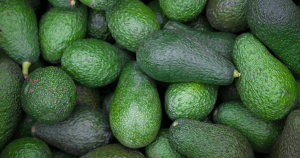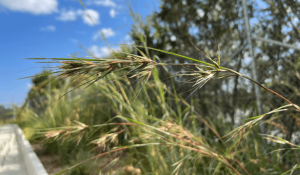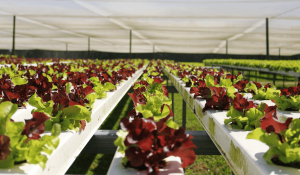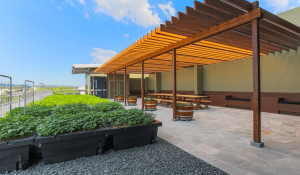Have you ever wondered why buying oranges in summer costs an arm and a leg? Well, it’s because they’re out of season and most likely imported. However, courtesy of our hardworking farmers, just about every fruit or vegetable is always at our fingertips.
This is partially due to the geographic diversity of Australia and the adoption of protected cropping systems and breeding programs that have extended seasons of many varieties (McKinna, 2020). Nonetheless, shopping in season is better for your wallet, the community and the environment.
We are happy only to eat Mangoes in Summer and Cherries at Christmas time, so why can’t this be the case for other fruit and veg? We have become accustomed to having almost every piece of fresh produce at our disposal regardless of seasonality.
Look, there is nothing at all wrong with eating delicious fruit and veg all year round. In fact, we at Green Endeavour encourage it! However, with some education, we can further understand the financial, environmental, and nutritional costs of not eating in season produce and how it can benefit our local communities.
The Financial Cost When You Eat Out of Season
Think of it simply – supply and demand. When a product is abundant, for example, oranges in Winter, they’re generally on special or at a lower price bracket. If a fruit or vegetable is out of season, farmers are not harvesting an abundance of it, meaning supply will be lower and prices will be high. The Herald Sun (2023) reported that a Melbourne mum of three trialled eating seasonally and found that her family of five saved around $50 per week! Can you imagine what the savings would be for a restaurant, cruise ship, hospital, age care home, café or fruit shop?
The transport, import and storage costs involved in supplying products not in season locally also raise the price. For example, in spring, you can buy Asparagus for as low as $1 a bunch, but when it’s not in season, it’s being imported from the US or Mexico and can increase up to $5 per bunch (Brooks-Duncan, 2023). Farmer’s Pick founder Josh Brooks-Duncan added that it costs us more to eat the same foods all year round, and considering that in Australia, we grow three times the amount of food we need, it doesn’t make sense to import it.
Only buying fruits and vegetables in their true Australian season also supports local growers as it reduces the need to import from international farms. In addition, buying locally strengthens communities and our local economy. So, in short, supporting local also supports your wallet and the broader economy and community.

The Environmental Cost
Eating seasonally and eating sustainably go hand in hand. However, to grow food outside its true season requires human assistance like genetic modification and pesticides which contaminate our soils. Fossil fuels (non-renewable energy) are also often used to replicate certain weather conditions. For example, mimicking heat to grow summer crops during winter.
Out-of-season produce requires more transportation, refrigeration and energy uptake as it increases the need for imported fruits and vegetables. In addition, transporting products by air and sea emits CO2 into the atmosphere, polluting the environment and attributing to global warming. Air freight accounts for 12% of global CO2 emissions (ATAG, 2020), while sea freight accounts for 3% (Transport & Environment, 2022). Transporting fruit and vegetables also decreases the products’ freshness and shelf-life, making them more likely to be discarded and wasted.
The Nutritional Cost
When produce is grown out of its regular season, it is often unnaturally modified, reducing its nutrients. An International Journal of Food Sciences and Nutrition study from 2008 found that the Vitamin C in broccoli grown in season was nearly twice as high as that produced out of season.
Our bodies are designed to eat with the seasons to get the necessary nutrients for that time of the year. Is the cold winter air making you sniffly? Grab an orange or another citrus fruit for boosted immunity and vitamin C!

Fruit and vegetables have the most significant nutritional content at their peak ripeness. Therefore, the sooner they arrive at the supermarket and then home with the customer or in your restaurant, the better. This is because it has spent less time being transported and will retain more nutrients. Therefore, the added time for transportation of imported produce compromises the nutritional value. According to the University of California, Davis, fruits and vegetables begin to lose their nutrients after they’re harvested and cut off from their original nutrient provider. This includes antioxidants such as vitamin C, folate and carotenes.
Not only is in-season produce better for you, but it tastes better too!
Have you ever eaten a freshly picked Strawberry and noticed it tastes sweeter and juicier? Well, that is because it has ripened naturally and been picked at the perfect time and in optimal growing conditions.
So now you may be thinking, but how do I know which fruits and vegetables are in season? Click here to access a fantastic seasonal produce guide! This guide is a great tool to refer to when speaking with customers to educate them on the benefits of eating local, in-season produce.
References:
ATAG (2020) Facts and Figures Air Transport Action Group https://www.atag.org/facts-figures.html#:~:text=Aviation%20is%20responsible%20for%2012,to%2074%25%20from%20road%20transport
Hetherington, T. (2023, February 16). Buying in-season fruit and vegetables could save a family $50 a week on … Herald Sun. Retrieved April 3, 2023, from https://www.heraldsun.com.au/lifestyle/smart/buying-inseason-fruit-and-vegetables-could-save-a-family-50-a-week-on-the-food-bill/news-story/e85bebfbf5db8cc3d5aa43973fb67d89
McKinna, D. (2020, November). A business case to invest in increasing vegetable consumption in Australia and a blueprint for its implementation. Victoria; Nutrition Australia and The Fruit & Vegetable Consortium.
Transport & Environment (2022) Ships European Federation for Transport and Environment https://www.transportenvironment.org/challenges/ships/
Wunderlich, S., Feldman, C., Kane, S., & Hazhin, T. (2008, February). Nutritional quality of organic, conventional, and seasonally grown broccoli using vitamin C as a marker. International journal of food sciences and nutrition. Retrieved April 3, 2023, from https://pubmed.ncbi.nlm.nih.gov/17852499/



